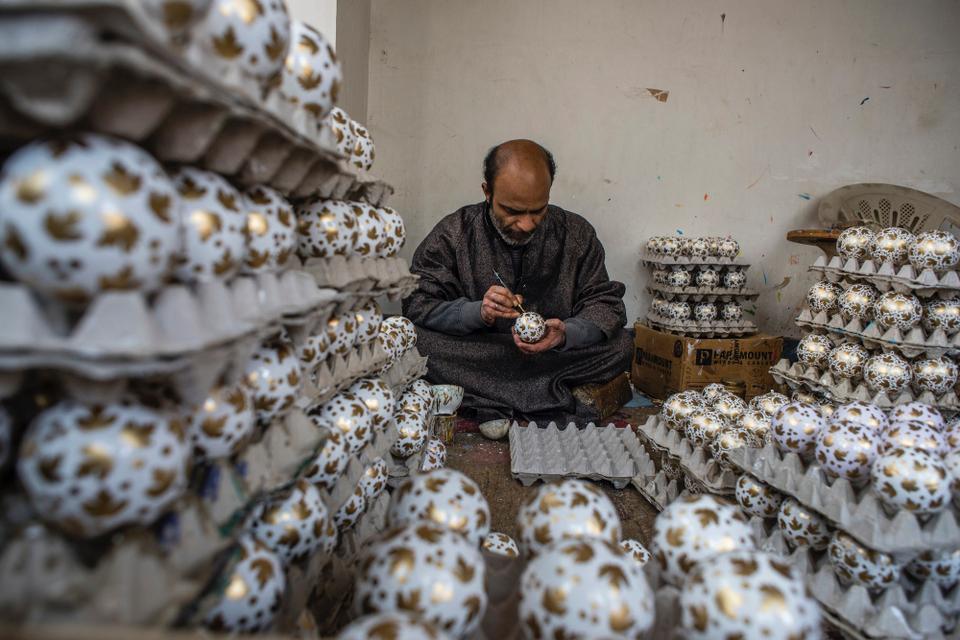Despite the pandemic’s devastating impact on business, foreign orders have begun to trickle in ahead of Christmas, giving the dying craft a lifeline.
Ahead of Christmas, Nasir Ahmed Mir, 60, a Kashmiri Muslim artist is busy giving the finishing touches to miniature paper mache Santa Claus dolls. The order is being readied for sale in the international market.
Sitting in one corner of a room strewn with paper mache articles and splattered with glitter and paint, Nasir is engrossed in his work and has no time to talk.
Nasir and his older brother Mohammad Akhtar Mir, 65, own one of the biggest paper mache workshops in Srinagar, the summer capital of India-administered Kashmir. They are among the biggest exporters of the 700-year-old craft, which has seen a decline over the years.
Paper mache articles are made from paper pulp, and the process involves various levels of expert craftsmanship. Earlier, artisans used colours of their choice, but now clients customise items according to the colour palette they want.
The work involves finesse and each item is deftly painted with attention given to each detail and pattern. The artisan’s brushstroke is a work of art in itself.
With Christmas looming around the corner, the Mir workshop is a busy place. Over a dozen artisans are working overtime to get Christmas orders ready for clients abroad. They are adroitly painting Christmas bulbs, bells, miniature Santa Claus reindeer, hanging stars and moon ornaments.With Kashmir having a miniscule 0.28 percent Christian population and a few chapels, Christmas paper mache goods are primarily sold internationally and have no local buyers. Mohammad said demand comes from the US, UK and other foreign countries.
For two years the Mirs received no international orders, but a trickle has poured in ahead of Christmas this year, infusing some life into the dying art.
Nasir said he has already dispatched an order of 100,000 glittery Christmas bulbs to a customer in the UK. Another 20,000 Christmas bulbs, miniature elephants, and reindeers were being prepared for a US client.
“Christmas orders have been placed after two years. But it is not the same as it used to be before 2019. Our business has decreased by almost 70 percent,” he said.
As a result of the pandemic, raw material costs sharply increased, as did carrier charges.
“The art is declining. Only those above 40 years of age are associated with it. Youngsters want to study and earn better,” said Nasir.
Fayaz Ahmed Bhat, an artisan at Mir’s workshop, said they had been preparing Christmas orders for the past month.
“Last year, there were no orders to prepare for Christmas due to Covid-19,” said Bhat, carefully holding a freshly painted Christmas bulb.


Comment here